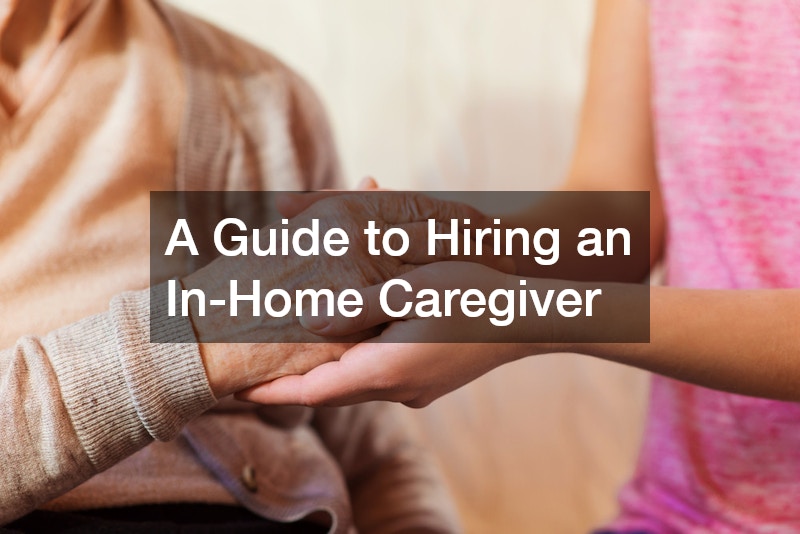
Finding the right in-home caregiver can be a daunting task, especially when you're tasked with ensuring the well-being of a loved one. With so many options and considerations to weigh, this guide aims to simplify the process. By understanding your needs, evaluating potential candidates, and knowing the right questions to ask, you'll be better equipped to make an informed decision. In this article, we will explore the essential steps to hire an in home caregiver who can provide the necessary assistance and companionship for your family member. Let's delve into the key factors you should consider during this crucial decision-making process.
Video Source
Before you can hire an in-home caregiver, it’s essential to have a clear understanding of the specific needs of the individual who will receive care. Consider the assistance they require daily, such as help with bathing, medication management, and meal preparation. Additionally, think about whether they need companionship or just physical assistance. An assessment of their emotional and social needs is also critical, as care is not just about physical well-being. This foundational knowledge will guide you in finding a caregiver who is well-suited to meet your loved one's unique requirements.
Another important factor to take into account is the level of care required—whether it's basic assistance or more specialized care for chronic conditions. Some caregivers are trained in specific areas, such as dementia care or physical rehabilitation, which may be necessary depending on your loved one’s health condition. It’s also worth discussing preferences and personalities. Will your loved one be more comfortable with a caregiver of a certain gender or age group? Understanding these nuances can lead to a better match and a more comfortable living situation.
Once you have a clear understanding of your loved one’s needs, the next step is to evaluate potential caregivers. Start by sourcing candidates through established agencies, personal referrals, or local job boards. Agencies often conduct background checks and training, which can provide an additional layer of security and assurance. Always request references and follow up with them to get firsthand feedback about the caregiver's experiences and capabilities. This step will help you filter through candidates and find quality individuals.
During the evaluation process, focus on the candidates’ qualifications and experience. Ask about their training, certifications, and any specialized skill sets they possess, such as CPR certification or experience with certain medical conditions. You should also assess their interpersonal skills, as a good caregiver should be empathetic, patient, and trustworthy. Arrange for a face-to-face meeting or, if that's not possible, a video interview. This provides an opportunity to gauge their personality and attitude, which can be crucial in building rapport with your loved one.
Once you have narrowed down your list of potential caregivers, conducting interviews is an essential step in assessing compatibility. Prepare a set of standardized questions to ask each candidate. This could include their approach to handling specific care situations, their availability, and how they would handle emergencies. Observing how they respond to these questions can provide insights into their experience and adaptability. Make sure to evaluate not just their answers but also their demeanor and communication style.
Compatibility goes beyond qualifications; it’s about the relationship between the caregiver and your loved one. Consider conducting a trial period where the caregiver spends time with your loved one without direct supervision. This way, both parties can see how well they interact. It can help in assessing whether they click on a personal level while providing care. Pay attention to small details, such as how the caregiver engages with your loved one and whether your loved one feels comfortable and relaxed.
After selecting the right in-home caregiver, it is time to finalize the arrangement. Draft a clear agreement that outlines the terms of employment, including working hours, payment rates, and specified responsibilities. Having a written document ensures that both you and the caregiver are on the same page and provides a reference point if misunderstandings arise. This will create professionalism in the relationship and set the tone for future interactions. Discuss the agreement in detail with the caregiver to ensure they understand their responsibilities.
Moreover, engaging in clear conversations about payment methods and any necessary tax obligations is crucial. Decide whether you will pay them through an agency or directly, and ensure that payments are timely to avoid friction. Discussing these factors upfront can help establish trust and promote a healthy working relationship. Additionally, express your expectations regarding communication about any changes to your loved one’s condition or care needs—an understanding is key to successful caregiving.
Finally, staying involved with the caregiver is important as you monitor the care being provided. Regular check-ins will help you assess the satisfaction levels of both your loved one and the caregiver. This ongoing engagement can prevent issues from escalating and allow for timely conversations about adjustments. Be open to providing feedback and welcoming the caregiver's input as well; a collaborative process enhances the overall care experience, ensuring your loved one receives the best support possible.
